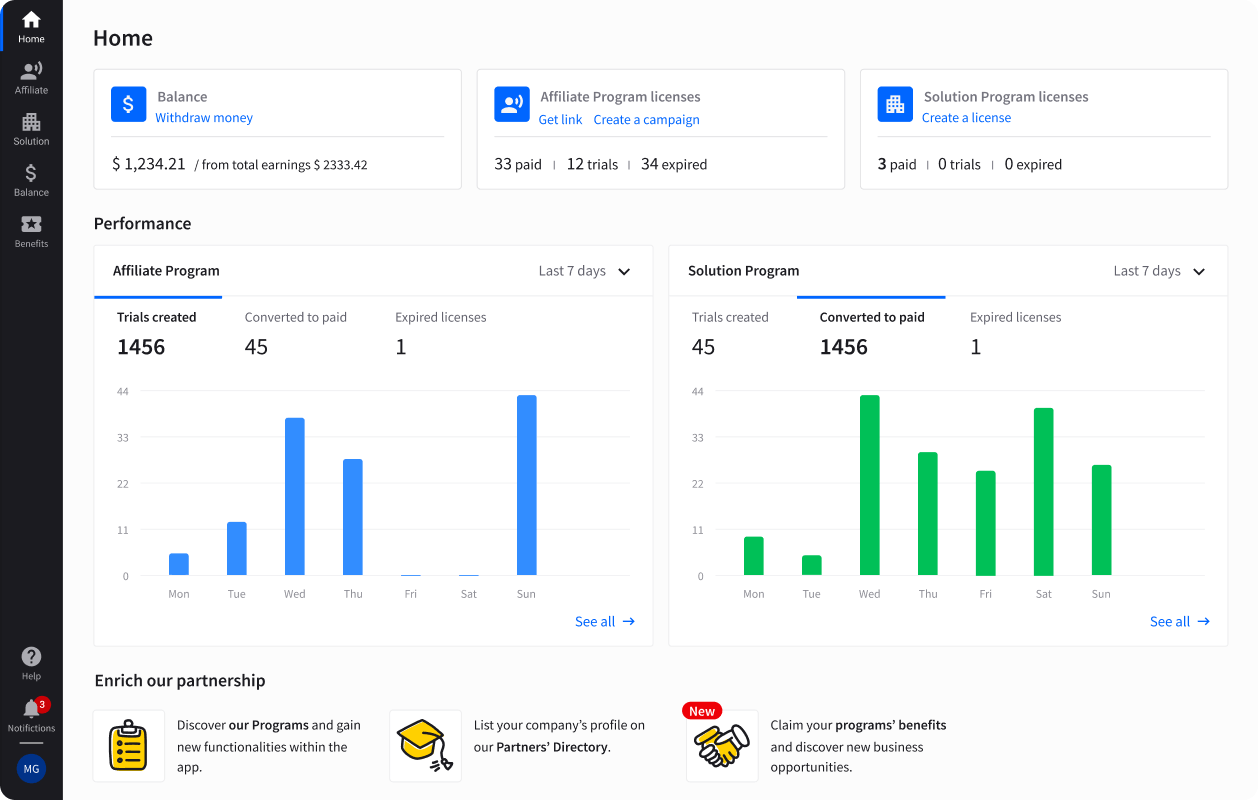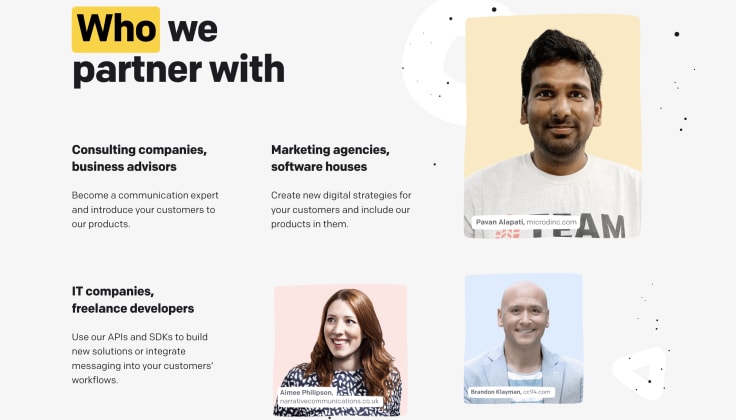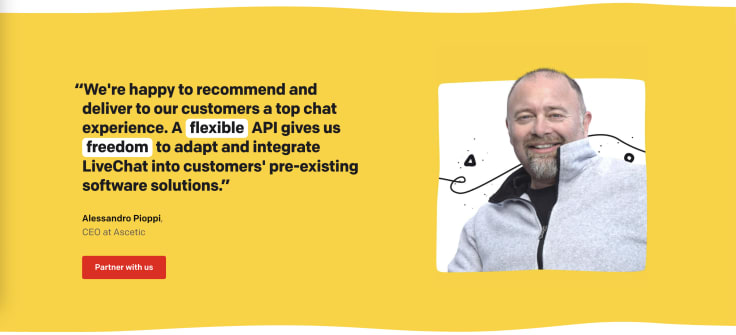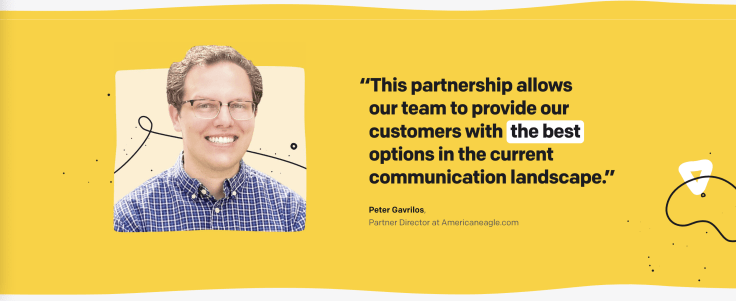Showing top 0 results 0 results found
Showing top 0 results 0 results found

Struggling to break into the marketing industry but unsure where to start? Are you overwhelmed by the sheer competition and wondering how to differentiate your services? Or maybe you have the skills but feel stuck when finding clients and building a sustainable business.
With more companies relying on digital channels to reach their customers, the demand for marketing services has never been higher. From SEO to social media management, businesses of all sizes are eager to engage their audience and willing to pay experts to do it right.
Discover everything you need to know about starting, growing, and scaling a marketing agency. From identifying your niche and building a solid portfolio to attracting clients and automating your processes, explore each step of building a successful digital marketing agency from the ground up.
Let’s dive in and turn your marketing passion into a profitable business!
Understanding the Marketing Agency Business
A marketing agency is a business that helps other companies promote their products or services through strategic communication and advertising efforts. Marketing agencies develop and implement strategies to drive engagement, boost brand visibility, and generate sales leads.
The scope of services includes:
- Digital Marketing: SEO, social media marketing, email campaigns, pay-per-click advertising (PPC), content creation, and more.
- Traditional Marketing: Print ads, television, radio, direct mail, and outdoor advertising.
- Consulting: Offering strategic advice to improve clients' marketing efforts.
- Creative Services: Designing logos, websites, video production, and graphic materials.
The perks of running an agency are numerous, including:
- Flexibility: As a business owner, you can set your schedule, choose your clients, and shape your services.
- Growing Market: With businesses shifting focus to online platforms, the demand for digital marketing skills continues to increase.
- Varied Clientele: Agencies work with clients from various industries, allowing for a diverse and dynamic work environment.
Join our Partner Program
Our Solution Program was designed for all consultants and agency owners who want to provide solutions to their clients.

Skills You Need to Start a Marketing Agency
Essential Technical Skills
- SEO (Search Engine Optimization): Ability to optimize websites for search engines, ensuring your clients’ businesses rank higher in search results.
- PPC (Pay-Per-Click) Advertising: Expertise in managing paid advertising campaigns on platforms like Google Ads and social media.
- Email Marketing: Crafting email campaigns to engage customers and nurture leads.
- Social Media Management: Developing and executing strategies on platforms like Facebook, Instagram, and LinkedIn to grow client brands.
Business Management Skills
- Client Communication: Managing client relationships and expectations through effective communication and collaboration.
- Budgeting: Understanding how to manage agency finances, including pricing services and managing overhead.
- Project Management: Ensuring that campaigns are executed smoothly and on time, balancing multiple clients and projects simultaneously.
Soft Skills
- Leadership: Leading your team to execute campaigns successfully while maintaining a positive and motivated workplace culture.
- Adaptability: The ability to pivot strategies as needed in the fast-paced marketing environment.
- Creative Thinking: Finding unique solutions and innovative ideas to help clients stand out in a crowded market.
- Problem-Solving: Quickly addressing challenges and making data-driven decisions to ensure campaign success.
👉 Read 35 Best Reseller Programs You Can Join Today.
I. Plan Your Marketing Agency
Planning your marketing agency is the cornerstone of future success. It clarifies the direction of your business, helps avoid potential pitfalls, and positions you to seize opportunities in a competitive landscape. You must set the right foundations and have a solid business plan to turn your vision into reality.
1. Identify Your Niche
Choosing a niche allows you to specialize in a particular industry or service area, making your agency stand out as an expert in that field. This focus can help you attract clients who are looking for tailored solutions. Also, specializing reduces the number of competitors since not all agencies focus on your chosen niche.
For example, a digital marketing agency focused on B2B companies, ecommerce businesses, or local services can more easily position itself as a go-to expert.
To choose your niche based on expertise and market needs:
- Assess your strengths and interests. What are you passionate about, and where do you have the most experience?
- Analyze market needs and gaps. Look for underserved industries or areas with growing demand for marketing expertise.
- Evaluate competition. A less saturated niche might give your agency a better chance of success.
For Example:
- A content marketing agency specializing in ecommerce brands, which can grow by offering highly tailored solutions for online stores.
- A B2B lead generation agency that can help tech startups scale by providing expert PPC and LinkedIn advertising services.

2. Conduct Market Research
Before diving into your marketing agency business, you must understand your competitors, market demands, and your target audience’s pain points. Thorough research can help you craft better solutions and differentiate your services.
a. Identify and Analyze Competitors
To stand out in a crowded market, you need to understand your competition:
- Direct Competitors: These agencies serve the same niche or offer services similar to yours.
- Indirect Competitors: These might include in-house marketing teams or freelance marketers who offer similar solutions to your target clients.
Visit competitor websites to study their service offerings, pricing models, and client testimonials. Research their marketing strategies, including how they use social media, blog content, and paid advertising. Also, look for gaps in their services or client pain points that you can capitalize on.
b. Understand Your Target Audience
Identifying your audience's struggles is key to crafting marketing solutions they’ll be eager to invest in. Common client pain points include:
- Difficulty reaching their target audience online.
- Low website traffic or social media engagement.
- Lack of expertise in SEO or paid search.
- Struggles with creating content or managing consistent email campaigns.
You can conduct market research through:
- Surveys and Interviews: Directly ask potential clients about their challenges and what they seek in a marketing partner.
- Google Trends: Explore search volume trends for keywords related to your niche, helping you identify emerging opportunities.
- Competitor Analysis Tools: SEO tools like SEMrush, Ahrefs, and Moz provide insights into your competitors' performance, including keyword rankings, backlinks, and PPC campaigns.
- Social Listening: Find out what your target audience discusses on social media platforms. This will help you better understand their needs and interests.
3. Create a Business Plan
A solid business plan is essential for turning your ideas into a sustainable business. It outlines your strategy, business model, and financial goals, serving as a roadmap for success.
a. Define Your Business Model
- Service-Based Model: In this model, you charge clients based on individual services (e.g., SEO audit, social media management). It’s flexible but can lead to fluctuating income as clients may not need ongoing services.
- Retainer-Based Model: This model involves long-term contracts where clients pay a monthly fee for ongoing services (e.g., continuous social media management and content creation). It offers more stable income and long-term relationships.
b. Set Your Goals
- Short-Term Goals: Focus on immediate tasks like building a portfolio, acquiring your first clients, and defining your service offerings.
- Long-Term Goals: These might include scaling your agency, expanding into new markets, hiring a larger team or a back office support provider, or offering additional services (e.g., PR or web design).
c. Financial Planning
- Startup Costs: Depending on your business model, startup costs might include software subscriptions (e.g., project management tools, CRM), website development, legal fees, and marketing expenses.
- Pricing Your Services: Research industry benchmarks and competitor pricing. Consider the following when setting prices:The complexity of your services (e.g., custom website development vs. basic SEO).
- Your expertise level and the value you deliver to clients.
- Costs for software, employees, or freelancers who will help you execute projects.
- Forecasting Revenue: Plan how much revenue you expect to generate within the first year. Consider the number of clients you can realistically manage, your service pricing, and the estimated time it takes to close sales with new clients.
Quick margin check (for new agencies)
Before you set your launch pricing—packages, hourly, or retainers—run the numbers with our Profit Margin Calculator.
- Enter software/tooling, contractor rates, and overhead
- Compare hourly, fixed-fee, and retainer scenarios
- See gross, operating, and net margins in seconds to avoid underpricing early clients
Define what sets your agency apart from competitors. Your USP could be your industry expertise, customer service, or specific service offerings. Also, potential risks like economic downturns or changes in marketing trends should be considered. Then, outline strategies to mitigate those risks (e.g., diversifying your service offerings or target markets).
👉 Read our guide on how to become a software reseller.

II. Set Up Your Marketing Agency
Once you've planned your digital marketing business, the next step is to set it up for smooth operations, compliance, and long-term growth. It involves making critical decisions about the legal structure, branding, and assembling a capable team.
1. Legal and Financial Setup
To legally establish your marketing agency, choose a business structure that suits your needs, such as a sole proprietorship, LLC, or corporation. A sole proprietorship is simple, but an LLC offers better protection for personal assets.
Ensure you obtain any required local businesses license or permit to operate legally. Open a separate business bank account to manage agency finances and separate personal and business funds. It helps streamline tax reporting.
Also, set up an accounting system to track income, profit margins, expenses, and taxes efficiently, and consider working with an accountant for proper financial management.
2. Branding Your Agency
A strong brand identity is essential for establishing credibility and attracting clients. Your branding should reflect your agency’s values, niche, and expertise and create a lasting impression with potential clients.
a. Agency Name
Your agency’s name should be memorable, relevant to your services, and resonate with your target market. If your agency focuses on a particular niche (e.g., healthcare marketing or ecommerce), consider incorporating that into the name. For example, “EcomGrowth Marketing” clearly indicates your services.
Ensure that your agency name has a domain available for your website. Check social media handles to create consistency across platforms.
b. Create a Brand Identity
Once you’ve chosen a name, build a cohesive brand identity communicating your agency’s values.
- Logo Design: Your logo should be professional, timeless, and easily recognizable. Invest in a quality designer or branding agency to create a logo that aligns with your mission.
- Color Scheme: Choose a color palette that reflects your agency’s personality and the services you offer. For example, blue conveys trust and professionalism, while orange may signal creativity and innovation.
- Brand Voice: Define the tone and style of your communication. Whether it’s casual, authoritative, or witty, your brand voice should resonate with your target audience and remain consistent across all platforms, from website copy to social media posts.
c. Design a Professional Website
Your website is your digital storefront, so it needs to make a great first impression. Here’s what to focus on:
- Services Page: Clearly outline your services and explain how each can benefit your clients. Make sure it's easy to navigate and highlights your key offerings.
- Portfolio: Show potential clients the results you’ve delivered. Case studies, project samples, and client testimonials help build trust and demonstrate your expertise.
- Testimonials and Social Proof: Highlight positive client feedback and any success stories that reinforce your credibility.
- Call-to-Action (CTA): Include clear CTAs throughout your site, prompting visitors to contact you for more information, schedule a consultation, or sign up for your services.
→ Read How To Get the First SEO Clients For Your Agency
3. Build Your Team
As your agency grows, you’ll need to bring on additional team members to support client work, business development, and marketing efforts. Building the right team is crucial for maintaining quality and scaling your operations.
When to Hire?
Initially, many agencies start by outsourcing tasks to freelancers or working with part-time contractors to keep overhead costs low. As your agency expands and you gain more clients, you may want to hire full-time employees for more stability and consistency.
- Freelancers: Ideal for short-term projects, specific tasks, or when you’re starting out and need flexible, cost-effective solutions. Freelancers are great for graphic design, copywriting, or ad management roles.
- Full-Time Employees: As your client base grows, you’ll need dedicated full-time staff, such as project managers, marketing strategists, and account executives. Full-time employees bring continuity and deep involvement in your agency’s culture and success.
Key Roles to Fill in Your Agency
- Marketing Strategist: A key player responsible for designing and executing marketing campaigns that drive client results.
- Content Creator: From blog posts to social media updates, content creators develop the messaging that resonates with your audience and enhances your clients’ visibility.
- Account Manager: This person is responsible for maintaining client relationships and acting as the liaison between the client and your team. They ensure client satisfaction and handle feedback, queries, and issues.
- Designer: Visual elements are crucial to marketing, so a talented graphic or web designer can elevate the quality of your client's campaigns.
- SEO/PPC Specialist: These roles are essential for driving traffic and optimizing online visibility for your client's businesses through search engines and paid advertising.

III. Acquire Clients and Build Your Portfolio
One of the biggest challenges for new digital marketing agencies is acquiring clients and building a strong portfolio. Convincing clients to trust your agency can be tough without a proven track record. However, you can establish a reputation and long-term relationships through:
1. Build a Portfolio Without Clients
When you're starting out, you may not have paying clients or a portfolio to showcase. But that doesn't mean you're stuck waiting for the first client to come along.
Offering free or discounted services to a few initial clients effectively builds trust and gains experience. Start by identifying small businesses or nonprofits that might benefit from your services but may not have a marketing budget.
It can help you develop case studies, testimonials, and real-world results to showcase your skills to potential paying clients. This also allows you to experiment and refine your processes without the pressure of high expectations.
If you're having trouble finding clients, you can build your portfolio by creating personal projects demonstrating your expertise. For instance, create mock marketing campaigns, design websites, or build out social media strategies for hypothetical or personal brands.
Once you’ve completed projects, whether for clients or personal work, focus on presenting them effectively in your portfolio. Case studies should include:
- The Client’s Problem: Explain the challenge or pain point the client faced.
- Your Solution: Describe your strategies or tactics to address their issue.
- Results: Provide measurable outcomes (e.g., increased website traffic and better conversion rates) to showcase the effectiveness of your work.
Testimonials are equally important for building credibility. After completing a project, ask for feedback from the client and request a brief testimonial you can feature on your website and marketing materials.
Social proof, such as client testimonials, can powerfully impact your reputation and help convince prospective clients to work with you.
2. Networking and Using Referrals
Networking is crucial to growing your client base. By joining online and offline marketing communities and groups, you can connect with potential clients, partners, and other industry professionals who may refer you to opportunities. Some strategies for networking include:
- Online Communities: Platforms like LinkedIn, Reddit, and specialized marketing forums offer spaces to engage with others in the industry. Share insights, answer questions, and contribute to discussions to increase your visibility and authority.
- Industry Events and Conferences: Meet potential clients and partners in person at local or virtual marketing events. These events are great for building relationships and expanding your network.
Word-of-Mouth Marketing
Word-of-mouth remains most effective, especially when you’re just starting out. Satisfied clients can be your biggest advocates, and their recommendations can carry significant weight when attracting new business.
After completing a project, respectfully and non-intrusively ask your clients for testimonials and referrals. The best time to request a testimonial or referral is right after you’ve delivered a successful project while the positive results are fresh in the client’s mind.
Always thank your clients for their testimonials or referrals and offer incentives, such as discounts on future services, where appropriate.
3. Social Media and Content Marketing
Social media platforms are powerful tools for attracting clients and establishing your brand. Each platform serves a different purpose:
- LinkedIn: Ideal for B2B marketing and showcasing your professional expertise. Share blog posts, industry insights, and project updates to position yourself as a thought leader in your niche.
- Instagram: Great for visual content and creative industries. Showcase your portfolio, behind-the-scenes work, and testimonials using engaging images and videos.
- Twitter (X): A platform to engage in industry discussions, share quick updates, and build a community around your brand.
Content marketing is one of the most effective ways to demonstrate expertise and build authority in the marketing industry. You can create:
- Blog Posts: Write about industry trends, marketing strategies, and case studies to attract potential clients looking for solutions to their problems.
- Videos: Share tips, tutorials, and insights via YouTube or other digital marketing channels. Videos are particularly engaging and can help you build a more personal connection with your audience.
- Podcasts: Discuss industry topics or interview experts in your field. A podcast can help you reach a wider audience and establish your agency as a go-to resource for marketing advice.
4. Run Ads and Try Cold Outreach
Consider running paid ads if you want to accelerate your client acquisition strategy. Pay-per-click (PPC) ads on Google or social media platforms like Facebook and LinkedIn can drive leads and inquiries to your agency. Start with a modest budget and experiment with different ad formats and targeting options to see what works best for attracting your target audience.
Also, cold outreach can still be a valuable tactic if done right. When crafting cold emails, focus on personalization and value. Address the recipient's pain points and explain how your agency can provide solutions. Use a clear and concise subject line to capture their attention and ensure your message stands out in a crowded inbox.
IV. Scaling Your Marketing Agency
Once your marketing agency has a solid foundation and a steady stream of clients, the next step is scaling your business. Scaling requires careful planning, improved processes, and ensuring your team can handle increased demand without compromising quality.
1. Retain Clients and Build Long-Term Relationships
Client retention is key to scaling a successful agency. Happy clients will not only stay with you but also refer you to others.
- Ongoing Services and Retainer Models: Offering ongoing services such as monthly social media management, content creation, or SEO ensures recurring revenue. Retainer-based models provide clients with consistent support while stabilizing your agency's cash flow.
- Strategy Reviews: Review and adjust marketing strategies regularly to align with client goals. Show clients how your work directly impacts their success to foster loyalty.
- Strong Client Communication: Maintain transparency, set clear expectations, and provide regular updates to build trust and strengthen client relationships.
2. Expand Your Service Offerings
Expanding your digital marketing services portfolio as your agency grows can help you attract more clients and increase revenue.
- When to Introduce New Services: Expand your offerings (e.g., web design, video marketing, or data analytics) once you’ve mastered your core services and identified client demand.
- Upselling to Existing Clients: Use the relationships you’ve built to offer additional services that complement existing work, driving more value for the client and your agency.
- Collaboration: Partner with freelancers or other agencies to broaden your capabilities without overextending your internal resources.
3. Automate and Streamline Operations
Efficiency is crucial as you scale, so automating and streamlining processes is essential to maintain high-quality service without increasing workload.
- Project Management Tools: Use tools like Trello to organize tasks, manage deadlines, and improve team productivity.
- Automation: Automate repetitive tasks like email marketing, social media scheduling, and reporting to save time. Reliable data entry outsourcing ensures your data remains clean without the overhead of a full-time hire.
- CRM Systems: Implement customer relationship management (CRM) tools like HelpDesk to track client interactions, improve communication, and monitor campaign performance.
4. Hire and Train Employees
As you scale, growing your team is necessary to meet increased demand and maintain service quality.
- Hiring as You Grow: Hire additional team members, starting with roles that are essential for managing more clients, such as account managers, marketing strategists, or creative professionals.
- Upskilling Your Team: Invest in ongoing training and development to keep your team updated on the latest marketing trends and technologies.
- Delegation and Leadership: Delegate responsibilities effectively and nurture leadership within your team to prepare for future growth.

V. Overcoming Common Challenges
As your marketing agency grows, you'll likely face several challenges. Here are some common ones and ways to overcome them:
- Finding and Retaining Clients: Client acquisition can be slow at the start. Focus on networking, referrals, and showcasing case studies to build credibility. Retain clients by delivering consistent results and maintaining strong communication.
- Managing Cash Flow: Balancing expenses and revenue is critical. Opt for retainer-based contracts to ensure steady income and maintain a financial buffer for slow periods.
- Scaling Operations: Managing workloads can become overwhelming as your digital agency grows. Invest in project management tools and automate repetitive tasks to streamline operations and successful business.
- Hiring the Right Team: Building a skilled and reliable team is essential but challenging. Hire strategically, focusing on long-term fits, and provide professional development to keep your team engaged.
- Keeping Up with Industry Trends: Marketing evolves rapidly. Stay competitive by continuously learning and adapting to new technologies, platforms, and strategies.
👉 Read How to Start a Digital Advertising Agency | 10 Actionable Steps
Maximize Your Agency's Growth with Our Partner Program
When starting your marketing agency, securing valuable partnerships can significantly accelerate your growth and offer countless benefits. One partnership worth exploring is our Partner Program, specially designed for agencies like yours.
The program provides exclusive advantages that go beyond standard reseller benefits, helping you scale faster and offer exceptional service to your clients.
Why Join Our Solution Program?
- Exclusive Discounts: Gain access to special pricing and bulk purchasing options, allowing you to offer competitive rates to your clients.
- 24/7 Dedicated Support: Enjoy priority support and training resources that help you onboard clients seamlessly and improve your agency’s service offering.
- Marketing and Sales Resources: Leverage co-branded materials and sales enablement tools that position your agency as an expert in customer communication solutions.
By joining, you position your agency as a trusted service provider with the tools and resources to meet your clients' evolving needs. Learn more about how this partnership can take your agency to the next level here.
Conclusion
Starting and scaling a successful marketing agency is a rewarding venture, but it requires careful planning, dedication, and the right strategies. Understanding the digital marketing landscape allows you to set yourself up for long-term success.
Take the first step today by creating a detailed business plan and selecting your niche based on your strengths and market demands. Remember, success in this industry comes from persistence, honing your skills, and staying adaptable in an ever-evolving marketing landscape.
Stay committed, and your agency can thrive in this competitive space!


